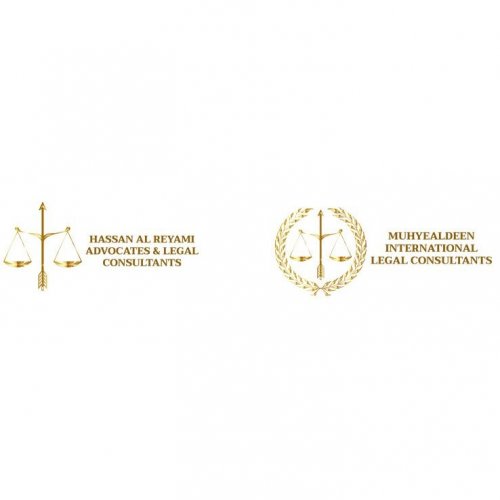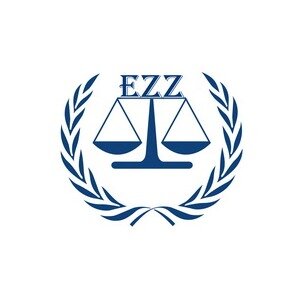Best Bankruptcy & Debt Lawyers in Abu Dhabi
Share your needs with us, get contacted by law firms.
Free. Takes 2 min.
List of the best lawyers in Abu Dhabi, United Arab Emirates

The Black Robe For Legal Consultancy & Debit Collection
1 hour Free Consultation
Saif Al Shamsi Advocates & Legal Consultants
30 minutes Free ConsultationUnited Arab Emirates Bankruptcy & Debt Legal Articles
Browse our 2 legal articles about Bankruptcy & Debt in United Arab Emirates written by expert lawyers.
- Debt Collectors in UAE: How to Stop Harassment & Verify Debt
- In the UAE, banks and their collection agents must follow Central Bank Consumer Protection rules that prohibit harassment, threats, and disclosure of your debt to third parties without a legal basis or your consent. You can require collectors to verify the debt and their authority. Ask for an itemized statement,... Read more →
- Understanding the UAE's New Bankruptcy Law
- Table of ContentsIntroduction: Demystifying the New LawA Paradigm Shift in UAE Insolvency LawThe Core Objective of the New LegislationWho Does the New Law Apply To? Navigating JurisdictionsOnshore vs. Financial Free Zone ApplicabilityCommercial vs. Personal InsolvencyThe New Judicial FrameworkThe Specialized Bankruptcy CourtSupporting Administrative BodiesPathways to Rescue: Options for Debt ReliefThe Preventive... Read more →
About Bankruptcy & Debt Law in Abu Dhabi, United Arab Emirates
Bankruptcy and debt law in Abu Dhabi, United Arab Emirates, is governed by a combination of federal laws and local regulations. These laws aim to provide a systematic approach to handling insolvency and financial distress for individuals and businesses. The UAE Bankruptcy Law, enacted in 2016, is a comprehensive legal framework designed to address financial difficulties while balancing the interests of debtors and creditors. It emphasizes rescue and restructuring in order to avert outright liquidation and provide opportunities for rehabilitation. In Abu Dhabi, part of the UAE federation, local courts oversee bankruptcy proceedings and adhere to these national laws.
Why You May Need a Lawyer
Legal expertise in bankruptcy and debt scenarios can be crucial for a number of reasons. A lawyer can help navigate the complexities of bankruptcy filings and ensure compliance with all procedural requirements. They provide guidance on negotiating with creditors, help formulate debt repayment plans, and represent client interests in court proceedings. Specific situations where legal help might be necessary include filing for bankruptcy, restructuring debts, facing aggressive debt collection tactics, or if there is a need to understand one's rights and obligations under UAE bankruptcy law.
Local Laws Overview
The UAE Bankruptcy Law, including its application in Abu Dhabi, is designed to offer protection and a structured process for both debtors and creditors. Key aspects include the initiation of bankruptcy proceedings, protective compositions, restructuring options, and potential liquidation steps. The law provides protection against the seizure of assets once a bankruptcy application is filed, outlines moratorium periods, and specifies the roles of insolvency practitioners. Unlike older commercial codes, the updated laws allow for potential discharge of debt obligations under certain conditions, safeguarding the continued operation of businesses with prospects of recovery.
Frequently Asked Questions
What is the first step to file for bankruptcy in Abu Dhabi?
The initial step is to submit a bankruptcy petition to the court. This can be done by the debtor or a creditor. Engaging a legal expert can ensure that all documentation is correctly compiled and submitted.
How long does the bankruptcy process typically take?
The duration varies depending on the complexity of the case, but it can take several months to years, especially if restructuring is involved. The process timeline is heavily influenced by negotiations and court schedules.
Can individuals file for bankruptcy, or is it only for businesses?
Both individuals and businesses can file for bankruptcy in Abu Dhabi. The law provides provisions for both personal and corporate insolvency.
Will filing for bankruptcy eliminate all of my debts?
Not all debts may be discharged under UAE bankruptcy law. Certain exclusions can apply, which is why professional legal advice is crucial to understanding specific obligations and outcomes.
Is there a minimum debt requirement to file for bankruptcy?
The law defines criteria for insolvency, but there is no specific minimum debt threshold to file for bankruptcy. It must be demonstrated that debts cannot be paid as they fall due.
What protection do I get once I file for bankruptcy?
Filing for bankruptcy initiates an automatic stay that prohibits creditors from taking further action against the debtor’s assets, offering immediate protection while proceedings are underway.
Can I continue to operate my business during bankruptcy proceedings?
Yes, businesses can continue operations under certain circumstances, particularly if they are undergoing restructuring rather than liquidation.
What is the role of the insolvency trustee in bankruptcy cases?
An insolvency trustee, often appointed by the court, is responsible for managing the debtor's estate, evaluating assets, and facilitating negotiations between debtors and creditors.
Are there alternatives to filing for bankruptcy?
Yes, options such as debt restructuring or entering into a protective composition-an agreement with creditors without court involvement-may be pursued, often with legal assistance.
What happens if my bankruptcy filing gets challenged?
If challenged, the court will review the objections, and a hearing may be scheduled where both parties present their arguments. Having legal representation is crucial in such cases.
Additional Resources
For further assistance, individuals can consult the Abu Dhabi Judicial Department, which provides guidance on court processes, or reach out to regulatory bodies such as the UAE Central Bank for debt-related queries. Professional legal firms specializing in bankruptcy and debt in Abu Dhabi can also offer personalized legal advice and representation.
Next Steps
If you require legal help in bankruptcy and debt matters, consider consulting with a legal expert experienced in UAE insolvency law. They can provide invaluable insights and guidance tailored to your specific situation. It is advisable to gather all relevant financial documents and details of your debts ahead of the consultation to facilitate an effective evaluation and discussion of options.
Lawzana helps you find the best lawyers and law firms in Abu Dhabi through a curated and pre-screened list of qualified legal professionals. Our platform offers rankings and detailed profiles of attorneys and law firms, allowing you to compare based on practice areas, including Bankruptcy & Debt, experience, and client feedback.
Each profile includes a description of the firm's areas of practice, client reviews, team members and partners, year of establishment, spoken languages, office locations, contact information, social media presence, and any published articles or resources. Most firms on our platform speak English and are experienced in both local and international legal matters.
Get a quote from top-rated law firms in Abu Dhabi, United Arab Emirates — quickly, securely, and without unnecessary hassle.
Disclaimer:
The information provided on this page is for general informational purposes only and does not constitute legal advice. While we strive to ensure the accuracy and relevance of the content, legal information may change over time, and interpretations of the law can vary. You should always consult with a qualified legal professional for advice specific to your situation.
We disclaim all liability for actions taken or not taken based on the content of this page. If you believe any information is incorrect or outdated, please contact us, and we will review and update it where appropriate.
Browse bankruptcy & debt law firms by service in Abu Dhabi, United Arab Emirates
Abu Dhabi, United Arab Emirates Attorneys in related practice areas.















